On this page
- Why do I have an appointment?
- What is clinical screening?
- Where is the appointment?
- What will happen at the appointment?
- Worried about the appointment?
- Regular check-ups
- Electrocardiogram (ECG)
- Echocardiogram (echo)
- Holter monitor (24hr tape)
- Exercise test
- Cardiac (MRI)
- Genetics
- Between clinical screening appointments
- Further information
- Useful websites
- Contact Information
Inherited cardiac conditions are a group of heart conditions that can be passed on through families.
Why do I have an appointment?
Children and young people with close family members who may have an inherited cardiac condition are offered clinical screening to check their heart.
What is clinical screening?
Clinical screening is when you have tests to look for or monitor signs of a cardiac condition. This may be because you’re having symptoms, or because a close family member has a heart condition.
Where is the appointment?
The clinic appointment will take place in outpatients, on E floor in Jubilee Wing, at the Leeds General Infirmary.
Your appointment can sometimes take a little while and there can be a little bit of waiting so you may want to bring something to keep you occupied.
What will happen at the appointment?
When you arrive at the clinic appointment one of the administrative clerks will check your address and contact details with you.
A healthcare assistant or nurse will then do your height, weight, and blood pressure, and before seeing the consultant you will go to a different area of outpatients to have an electrocardiogram (ECG).
You will also need to have an echocardiogram (echo) which will be done by one of our sonographers or the cardiology consultant. This will either take place before you see the consultant or at the same time. When you see the consultant they will have a conversation with you about your health and how you’re feeling and will tell you the results of the ECG and echo. You will also be able to ask any questions that you have.
At your appointment you may also meet one of the specialist nurses. The specialist nurse can help answer any questions that you may have and will give you contact details if you have any questions or concerns after your appointment.
Back to topWorried about the appointment?
Worried about the appointment? Coming for a hospital appointment can sometimes make you feel worried. If you feel anxious before the appointment, whilst you are here or afterwards, you can talk through your worries with the specialist nurse. They will answer any questions you have and support you through your appointments.
The Congenital Cardiology Psychology and Counselling team are also available to help support parents, children and young people talk through their worries and fears.
Please scan the QR codes at the back of this leaflet to access leaflets for information and top tips on self-care and managing you or your children’s worries.
If you feel extra support would be helpful, please ask your Children’s Cardiac Nurse Specialist to refer you to the service.
Regular check-ups
The doctor may want you to come back to have the tests done again, they will talk to you about how often and for how long for. If you are still having checks when you are 16 you will then be moved over to be seen by the adult team.
The tests you may have are:
Electrocardiogram (ECG)
An ECG looks at the electric activity of your heart. You will be asked to sit or lie down and 12 stickers will be placed on to your arms, legs and chest. These are connected by wires to an ECG machine that creates a trace of your heart rhythm. Whilst the ECG is performed you will be asked to keep still so that it works properly. The ECG will then be printed out on a piece of paper for the consultant to review.
Echocardiogram (echo)
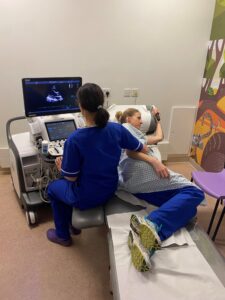
An echo is a scan that uses ultrasound (sound waves) to produce pictures of your heart. You may be asked to take your t-shirt off and if you are wearing a bra you may also be asked to remove this. A gown will be provided to keep you covered and warm. Three stickers will be placed on to your chest to monitor your heart rate during the scan. A probe and a small amount of gel will then be placed on your chest and moved around to get images of your heart. You may also hear noises when the echo is being done, this is the sound of the blood flowing through your heart. To get the best pictures you may be asked to lie in different positions and the lights in the room will be turned off for the duration of the scan.
Holter monitor (24hr tape)
After your appointment the consultant may arrange something called a 24 hour tape. This is where three stickers are placed on your chest and have cables that are attached to a little box so it can monitor your heart rate over a period of time. You should carry on doing the things you normally do whilst you have the monitor on. If you experience any symptoms whilst the monitor is on please keep a little diary of these.
Back to topExercise test
An exercise test may also be arranged after your appointment. This is where your heart rate will be recorded with an ECG whilst you exercise on a bike or a treadmill. You will start by walking or cycling slowly and then the incline of the treadmill or speed of the bike will be increased slowly.
Cardiac (MRI)
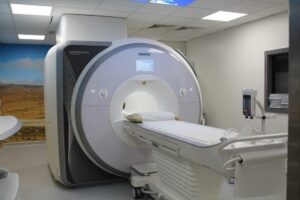
Your consultant may arrange for you to have a MRI of your heart. This is a scan which allows us to see your heart in detail and take lots of pictures of it. A MRI scanner looks like a doughnut ring, and you would be asked to lie on a bed whilst going through the doughnut. A MRI can take a little bit of time so you would be given some headphones to listen to some music whilst the scan takes place.
Genetics
Inherited cardiac conditions may be caused by an underlying genetic change (variant) and can begin either new in a person, or sometimes can run in families.
You may meet a member of the genetics team in clinic and they will explain more about how these conditions can be inherited and what genetic testing may be available for family members.
They may also gather information about your family’s medical history because this could be helpful for assessing how the condition is inherited and who in the family would be advised to have screening.
Between clinical screening appointments
If between your appointments to get your heart checked you:
- feel dizzy
- have episodes of fainting or being unconscious
- have chest pain or palpitations where your heart feels like it is beating fast
- feel breathless on exercise
Further information
Psychology and Counselling information leaflets
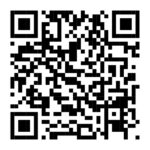
Self-care
LN005143.pdf (leedsth.nhs.uk)
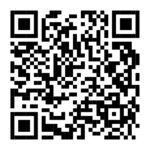
When I worry ‘top tips’ for adults
LN005197.pdf (leedsth.nhs.uk)
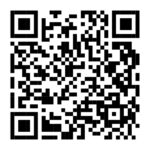
When I worry ‘top tips’ for kids
LN005195.pdf (leedsth.nhs.uk)
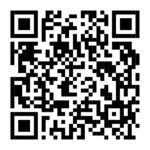
When I worry ‘top tips’ for teenagers
LN005196.pdf (leedsth.nhs.uk)
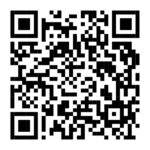
When your child worries ‘top tips’ for parents and carers
LN005462.pdf (leedsth.nhs.uk)